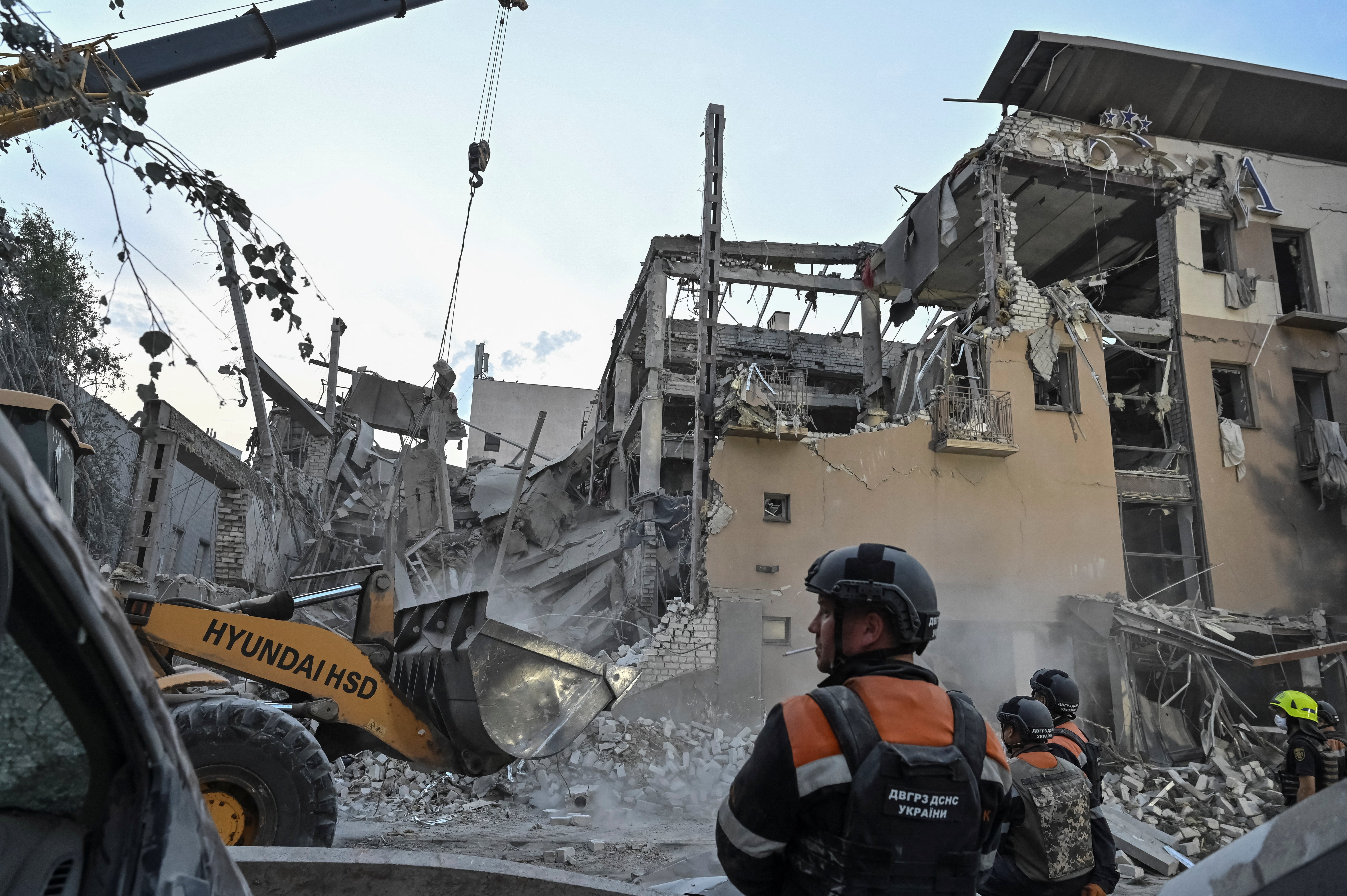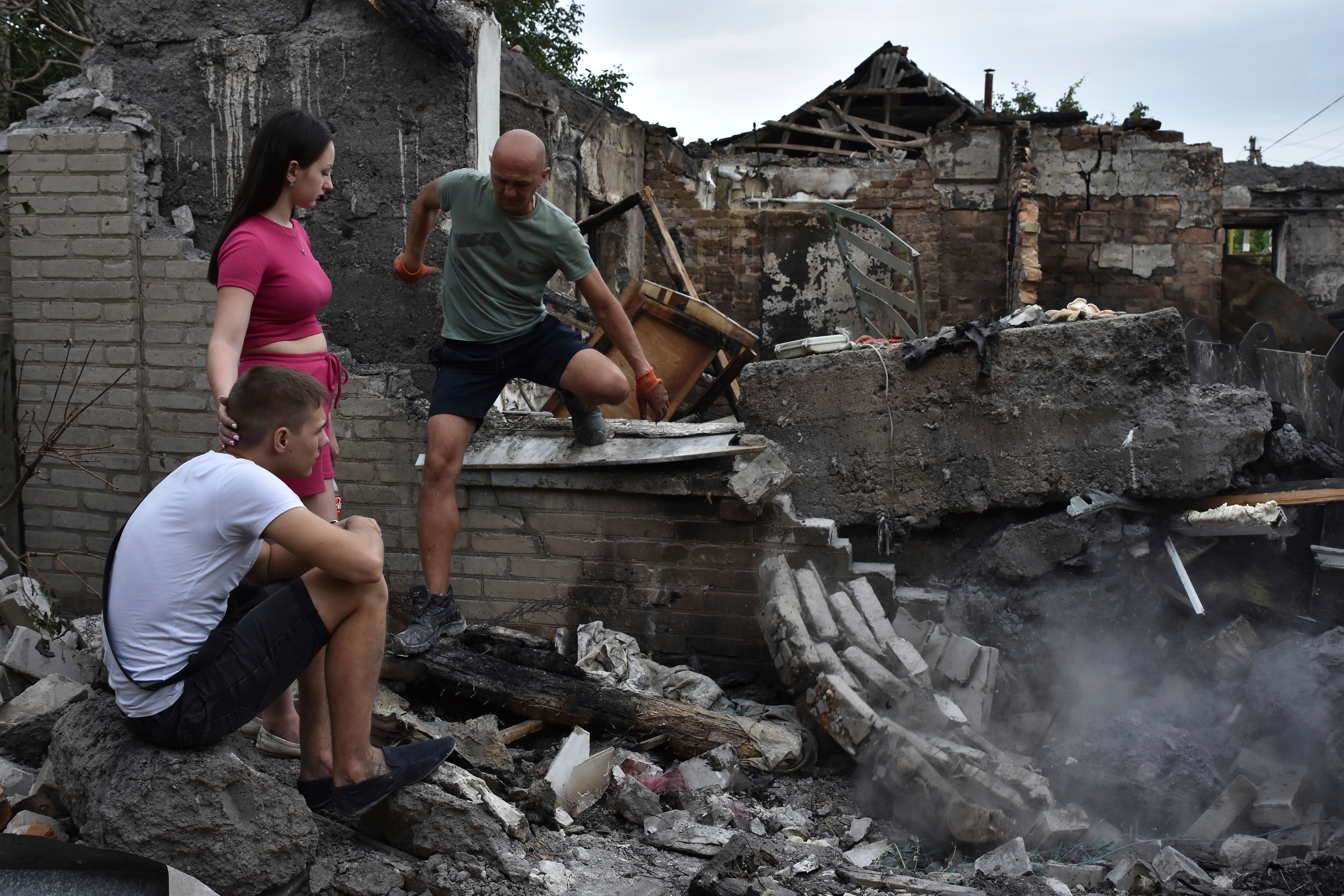Why is Russia launching massive airstrikes across Ukraine?
For some experts, Vladimir Putin’s air attacks are an attempt to reclaim the narrative after Kyiv’s Kursk incursion
Your support helps us to tell the story
From reproductive rights to climate change to Big Tech, The Independent is on the ground when the story is developing. Whether it's investigating the financials of Elon Musk's pro-Trump PAC or producing our latest documentary, 'The A Word', which shines a light on the American women fighting for reproductive rights, we know how important it is to parse out the facts from the messaging.
At such a critical moment in US history, we need reporters on the ground. Your donation allows us to keep sending journalists to speak to both sides of the story.
The Independent is trusted by Americans across the entire political spectrum. And unlike many other quality news outlets, we choose not to lock Americans out of our reporting and analysis with paywalls. We believe quality journalism should be available to everyone, paid for by those who can afford it.
Your support makes all the difference.In recent days, Vladimir Putin’s forces launched their biggest air attack on Ukraine since the war began as more 200 missiles and drones struck towns and cities across the country.
Seven people were killed in the strikes, as well as four more in a fresh attack on Tuesday, Ukrainians also faced power cuts and water outages with Moscow deliberately hitting Kyiv’s energy grid.
Ukrainian prime minister Denys Shmyhal said 15 regions had sustained damage and Zelensky warned the energy sector had suffered serious harm while vowing revenge for what he called Putin’s war crimes.
So why is Russia launching so many air attacks - the biggest since Putin’s illegal invasion in February 2022 - and how much of an impact on Ukraine are they likely to have?The Independent takes a look below.

Why is Putin launching strikes?
Hurting Ukraine’s energy capacity
Like every year since the war in Ukraine began over two years ago, Russian forces have started hitting power stations and other sites with force before winter sets in.
Professor Mark Galeotti, academic and author of more than 20 books on Russia, suggested the most recent strikes are part of the same pattern - intended to make Ukrainian’s miserable enough to submit to Moscow.
“Putin’s strategy is to make the Ukrainians miserable enough to give up. The Russians are trying to systematically break apart Ukraine’s power grid because it could face a rough winter,” he told The Independent.
“Once we get into October, temperatures tend to plummet. That’s when you suddenly get a lot more load on the grid and the problems will become clear. Ukrainians will at best have rationed power.”

Information warfare and revenge for Kursk
The strikes have come just weeks after Ukraine launched its audacious cross-border incursion into Kursk, with Kyiv’s top commander claiming 500sq miles of territory in little over three weeks.
For Marcel Plichta, former analyst at the US Department of Defense, this is not a coincidence. “These strikes usually come after some kind of Ukrainian success story,” he told The Independent.
“They are part of an information war. It is an attempt by the Kremlin to get back a narrative that shows Russia as the big strong actor in this war and Ukraine as weak and vulnerable.
“They are petty strikes and are about retribution. The targets have not had military value. They have hit apartment buildings or grain silos. It is an attack on the Ukrainian people, not Kyiv’s ability to wage war.”

What impact will they have?
The Russian strikes were delivered via some 100 Iranian-made Shahed drones and roughly the same number of cruise and hypersonic missiles, according to Mr Zelensky.
Despite the huge barrage, the Ukrainian military said it was able to shoot down 102 out of 127 missiles and 99 out of 109 drones.
For Mr Plichta, the impact would be negligible. “I don’t think they will force any change in Ukrainian policy. It won’t force a capitulation in anyway, or affect Kyiv’s advance in Kursk,” he said.
“The biggest worry is the affect on the energy grid. If it is damaged enough, it might not be viable for Ukrainians to stay in big cities so you might see a mass exodus to European countries over winter.

Join our commenting forum
Join thought-provoking conversations, follow other Independent readers and see their replies
Comments